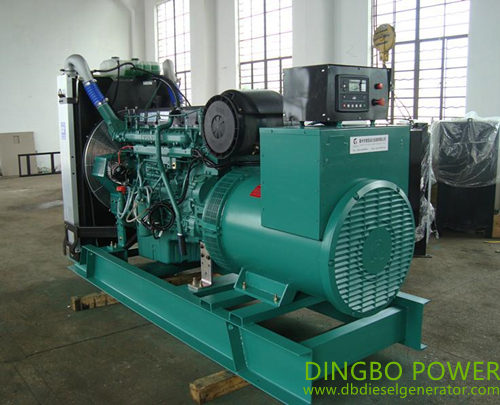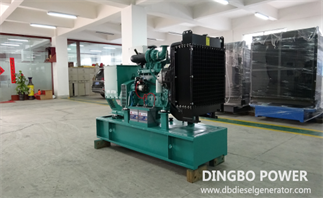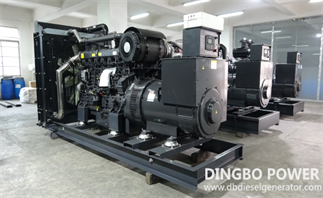dingbo@dieselgeneratortech.com
+86 134 8102 4441

- Home
- Products
- About Us
- Service
- News
- Technical Support
- Contact Us
dingbo@dieselgeneratortech.com
+86 134 8102 4441
Jul. 10, 2021
Diesel engine is an internal combustion engine using diesel as fuel, which belongs to compression ignition internal combustion engine. When the diesel engine is working, the air in the cylinder is compressed to a higher degree due to the movement of the piston. At the end of compression, the high temperature of 500 ~ 700 ℃ and the high pressure of 3.0 ~ 5.0 MPA can be reached in the cylinder. Then the fuel is sprayed into the high temperature air in the form of mist, and mixed with the high temperature air to form a combustible gas, which can ignite automatically.The energy released during combustion (the maximum explosion pressure is more than 10. OmpA) acts on the top surface of the piston, pushes the piston and converts it into rotating mechanical work through the connecting rod and crankshaft, and then outputs power to the outside. So what is the fuel consumption rate of diesel engine? This article by the top Bo power for you to briefly explain.
Fuel consumption rate of diesel engine.
The fuel consumption rate of diesel engine is an important index reflecting the economic performance of diesel engine. It refers to the fuel consumption per kilowatt power per unit time. It is a relative index measured and calculated in the laboratory.On the diesel engine test bench, the fuel consumption rate of the diesel engine can be calculated by measuring the power of the diesel engine and the fuel consumption per unit time, expressed by the letter Ge, and the unit is g / kW · H.

1. Calculation formula: Ge = (103 × G1)/Ne.
Where Ge is the fuel consumption rate (g / kW · h); G. Is the fuel consumption of LH (kg); NE is the power (kw). The fuel consumption rate of diesel engine is a relative index. Under the same conditions, the lower the fuel consumption rate, the better the economic performance of the diesel engine and the more fuel-efficient it is.
2. 100km fuel consumption (L / 100km): in actual use, the general way to measure whether the diesel engine saves fuel is to see the fuel consumption of the vehicle every 100km. The fuel consumption of 100km can only be obtained through actual use.
Fuel consumption of 100km (lg100km) = actual fuel consumption of vehicle (L) / driving distance of vehicle (km). The actual fuel consumption is related to the service conditions, tonnage and driving habits of the vehicle. Under the same driving conditions, the lower the fuel consumption of 100km, the more fuel-efficient the diesel engine is.
3. Hourly fuel consumption: for agricultural diesel engines, construction machinery diesel engines, etc., the fuel consumption of diesel engines can also be expressed by the weight of fuel consumed within one hour, which is called hourly fuel consumption, and the unit is kg / h. Due to the different power of diesel engines, the fuel consumption per hour or per 100km is also different, so the fuel consumption can not be used to measure the fuel economy of different diesel engines.
Guangxi Dingbo Generator Set Manufacturing Co.,Ltd. has a modern production base, professional R & D team, advanced manufacturing technology, perfect quality management system, sound after-sales service guarantee, from product design, supply, commissioning, maintenance, to provide you with a comprehensive, intimate one-stop diesel generator solutions.
Dingbo Power has a series of diesel generators. If you are interested in diesel generators, please contact us by email dingbo@dieselgeneratortech.com.

Optimal fuel tank for A Diesel Generator Set
Jan. 13, 2026

Quicklink
Mob.: +86 134 8102 4441
Tel.: +86 771 5805 269
Fax: +86 771 5805 259
E-mail: dingbo@dieselgeneratortech.com
WhatsApp: +86 134 8102 4441
Add.: No. 10 Kechuang Road, High tech Zone, Nanning, Guangxi, China